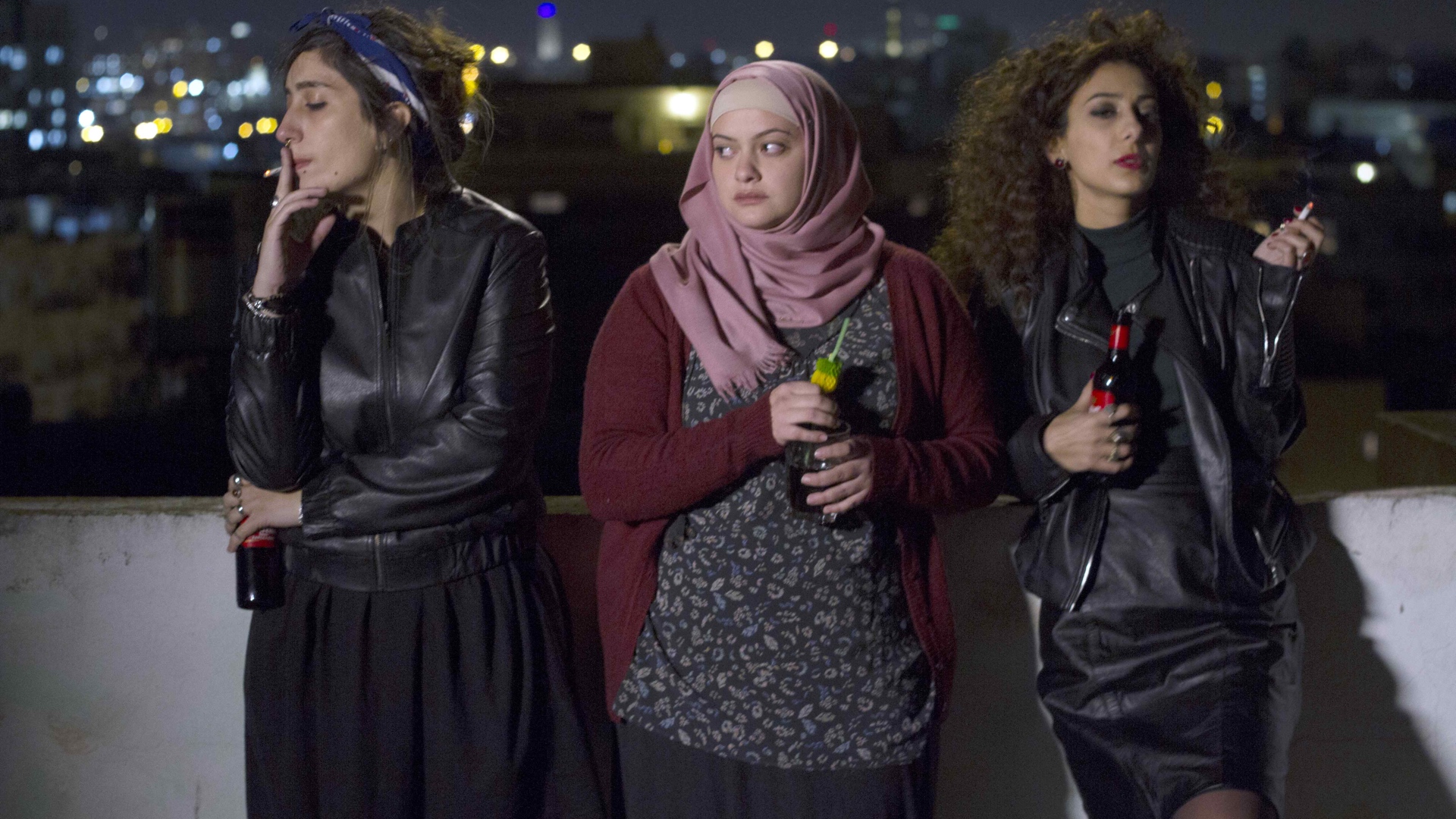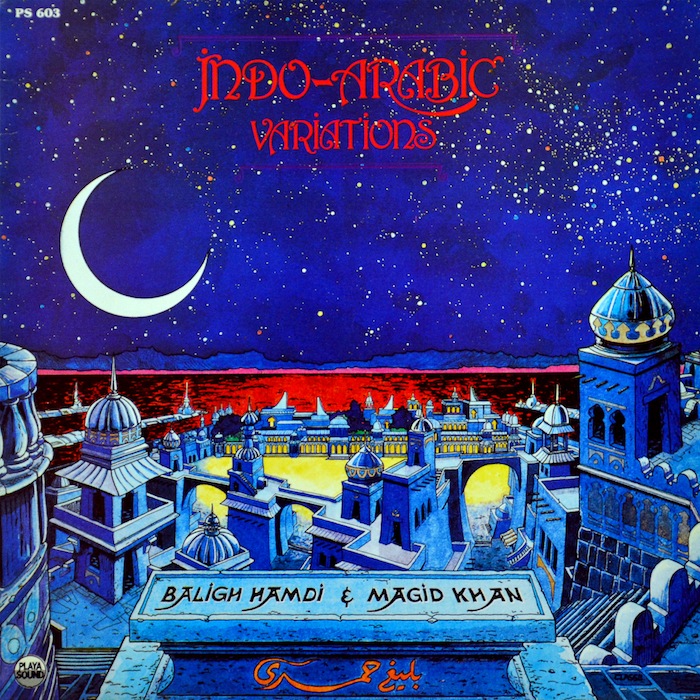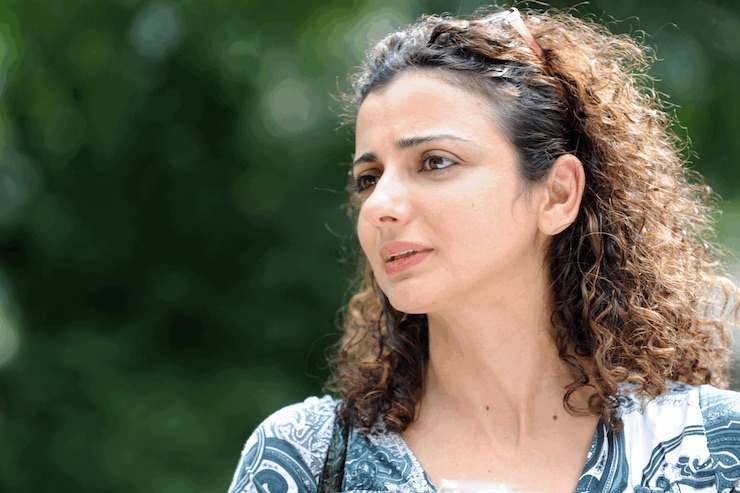As our state of COVID-19-induced lockdown stretches on, recommended culture lists have moved beyond what’s current and are instead combing through various cultural back catalogs, putting together curated rundowns of classics or little-known gems we might have missed.
So we’ve dug through our own archives at +972 Magazine and truffled up a decade’s-worth of articles on culture from Israel-Palestine, as well as the rest of the Middle East and North Africa. We found some esoteric gems — for example, an article about a Tel Aviv record company that collects rare records from Egypt, Lebanon, India, Israel-Palestine, and beyond — as well as in-depth pieces on cultural offerings that generated political controversy, such as the novel about a love affair between an Israeli Jewish woman and a Palestinian man, which was banned from high school reading lists in Israel.
Read on for all this and more — and don’t forget, too, that you can also catch up with some of our most groundbreaking and impactful long reads here. And if you’re looking for inspiration as to how to create culture in lockdown, check out this story about a new Palestinian radio station that’s broadcasting live under quarantine from the occupied West Bank.
Watch
In Between (2016), directed by Maysaloun Hamoud
Maysaloun Hamoud’s groundbreaking drama, In Between (Bar Bahar in the original Arabic, literally “land and sea”), came out in 2016 to critical acclaim and considerable buzz. It’s not hard to see why: Hamoud’s portrait of three Palestinian women living in Tel Aviv is a compelling drama which allows for moments of levity, even as it tackles feminism, racism, patriarchy, queerness, and religion. According to Hamoud herself, this combination of bold narrative style with complex issues that couldn’t be resolved within the film’s running time was part of her vision. “In most Palestinian movies the political story dominates the plot, and so [women] are generally represented as victims,” she told Haggai Matar after the film’s release.
“One way of telling this complex story of women, and the weighty issues that accompany it, was to wrap the whole tale in simple cinematic language, almost American,” Hamoud added. “It’s also the women’s internal language in the film. They are burdened by the outside world, but they see themselves in the same image we are accustomed to seeing in the cinematic output of a liberated and vibrant society. The film’s producer, Shlomi Elkabetz, calls this ‘bitter candy’ — something wrapped in flamboyance and beauty. You get into the film, and then get kicked in the stomach.”
And once you’re done watching the film, you can listen to its excellent soundtrack here.
On the Side of the Road (2013), directed by Lia Tarachansky
What do Israeli Jews think, or even know, about the Nakba? That is the question driving Lia Tarachansky’s personal 2013 documentary, On the Side of the Road, — a discussion which is, as Lisa Goldman notes in her review of the film, “the biggest taboo in Israeli Jewish society.”
On the Side of the Road – Official Trailer from Naretiv Productions on Vimeo.
The film’s title refers to a scene in which Tarachansky is left alone on a road leading to the West Bank settlement where she grew up, grieving the disconnect between the community she experienced as a child and the price she came to realize others paid for that community to exist. Yet the title also evokes the physical residue of the expulsion and destruction of 1948 — the countless ruins of Palestinian towns and villages, now no more than solitary, scattered buildings that lie empty at the sides of the road, and which testify to ongoing displacement, erasure, and denial that what has been lost was ever there at all.
5 Broken Cameras (2011), directed by Emad Burnat and Guy Davidi
One of the most well-known documentaries about the occupation, 5 Broken Cameras, documents life in Bil’in as the West Bank village becomes increasingly subjected to state and interpersonal violence. As the occupation encroaches ever further on life in the community — whether via the separation wall, the destruction of the village’s olive groves, or settler and soldier aggression — Burnat’s cameras tell the story in unflinching style, both by documenting the constant repression of normal life, and by being smashed by representatives of the state, in a blunt metaphor for the brutality of military occupation.
Policeman (2011), directed by Nadav Lapid
This Israeli drama is, as Noam Sheizaf writes in his review, a studied portrait of “the all-Israeli machismo.” The eponymous protagonist, Yaron, is a member of an elite police unit under investigation for killing a Palestinian detainee; he is, as Sheizaf observes, an alpha male who is “chauvinistic, militaristic, childish, and rude.” While the film has a slow-paced, at times arthouse-y feel, it also works hard to interrogate how that “alpha male” template came to be — and what its potential consequences are.
Oriented (2015), directed by Jake Witzenfeld
Oriented, which follows the lives of three gay Palestinian men living in Tel Aviv, is the second film in our list to feature the famed, now-closed Anna Loulou bar in Jaffa, a space that was exceptional mostly for being a bubble of near-normalcy in a highly dysfunctional environment (the other film is In Between). It’s among the many locations in a documentary that incessantly hops cultural, national, and international borders — traveling between Jaffa, I’billin in the Galilee, Amman, and Berlin, as Khader, Fadi, and Naim, all Israeli citizens, explore places and relationships that can contain all of their selves at once.
Despite the premise, however, this is no pinkwashing venture about how gay Palestinians are uniquely able to thrive in Tel Aviv. As Lisa Goldman remarks in her review, the film not only grapples with the horrendous spike in violence against Palestinians during 2014, the year it was recorded; it also bursts through the patronizing “templates” Israeli-Jewish society projects onto queer Palestinians. In the end, she writes, “Tel Aviv is not doing them any favors by providing a more open environment to explore their sexual, social and political identities. It’s their country too.”
Our Boys (2019), created by Tawfik Abu Wael, Joseph Cedar, Hagai Levi
This 10-part mini-series offers a forensic, if dramatized, depiction of the investigation into the torture and murder of 16-year-old Mohammed Abu Khdeir, a Palestinian from East Jerusalem, by Israeli settlers in the summer of 2014. The killing took place just under a week before the 2014 Gaza war broke out. Its perpetrators cited it as revenge for the kidnap and murder of three Jewish teenagers in the occupied West Bank a few weeks prior by Palestinians.
The atmosphere of violence spiraling out of control is captured expertly by the creators of the series, which was lauded by critics as an unblinking examination of the ills in Israeli-Jewish society. But as Haggai Matar reflected upon its airing, the show nonetheless perpetrates its own erasures — not least in how it largely swerves around the issue of the occupation. And though the first few episodes seek to make a point about the hubris — and delusion — of the Shin Bet agents who believed that no Jew could possibly have committed so grotesque an assault as the one on Abu Khdeir, the series ultimately flatters a security agency that is, as Matar points out, “the mastermind behind some of the occupation’s most egregious abuses.”
Nonetheless, there are compelling reasons to watch the series, Matar argues — including that it achieves a level of complexity surrounding the reality in Israel-Palestine that most films and TV shows fail to reach. Notable, too, writes Moran Habaz, are the ways in which it reveals the brokenness of “the leftist Mizrahi discourse around the ‘Arab-Jew.'”
Listen
The rarest records, from India to Palestine
Tel Aviv’s Fortuna Records specializes in collecting hidden classics from around the Middle East, North Africa, and South Asia — and some of their favorites are assembled in this article. Whether it’s an instrumental rarity from an unknown artist whose cover evokes “a Lebanese Kill Bill,” a group calling themselves “The Dancing and Singing Group of the P.L.O.,” or an Egyptian-Pakistani collaboration, there are treasures here waiting to be discovered — and the “mixtape” embedded at the top of the article should get you on your way.
Re-learning history: A tribute to North Africa’s Jewish artists
Ophir Toubul, who founded the Café Gibraltar project which had its own section on this site until it shuttered a few years ago, takes us on a tour through North Africa’s Jewish musical heritage. The article features an array of cultural icons, from the renowned Sami Halali, an Algerian, openly-gay singer who was saved from the Nazis in Paris by the imam of the city’s Grand Mosque, to Haim Botbol, who had a concert held in his honor in Morocco several years ago.
Despite the depth and breadth of this cultural history, however, it has — as Toubul notes — generally received shorter shrift in Israel than in these artists’ countries of origin. He describes how many North African stars ended up in obscurity in Israel, owing to entrenched racism against Mizrahim and the Ashkenazi hegemony’s blanket dismissiveness toward Middle Eastern and North African cultural output.
Musicians who came to Israel from the Maghreb faced stark choices, Toubul writes: “either squeeze themselves into the category of religious music and piyutim [liturgical poetry, often sung], or either stay in the Moroccan cultural ghetto or become a joke outside of it.” Nonetheless, he concludes, a younger generation of Maghrebi musicians in Israel has started to reshape the country’s cultural map — suggesting that “a different future is possible.”
[Note: The first embedded YouTube video in the piece, a clip from the film Le Port Des Amours about the Algerian-Jewish singer Reinette L’Oranaise, has since been taken down. You can watch the full film (in French) here.]
PODCAST: The Palestinian musician shattering taboos
“Everybody wants to talk about peace, but nobody wants to talk about justice,” Maysa Daw tells Henriette Chacar in an interview on the +972 Podcast. The 27-year-old singer and songwriter, a member of the Palestinian hip hop group DAM, has stared down numerous taboos as a female Palestinian musician in Israel — encountering racism, chauvinism, and misguided efforts at cultural “coexistence” projects along the way. Once you’ve listened to the interview, you can sample DAM’s latest album here.
Read
All the Rivers — Dorit Rabinyan (2017)
What was it about Israeli writer Dorit Rabinyan’s novel that was so incendiary, it was banned from high school reading lists? As the author suggests in her interview with Dahlia Scheindlin, there was a literal reason — it depicted a romance between an Israeli-Jewish woman and a Palestinian man — and an actual reason: it threatened Israel’s national identity. The story, which — like its protagonists — is messy and human, engages in the “magic of crossing the border of the self, diving inside the waters of the other, of being not me and seeing yourself from there,” Rabinyan tells Scheindlin. And that, in the face of the homogenizing force of far-right ethno-nationalism, is a wonderfully dangerous thing indeed.
The Book of Disappearance — Ibtisam Azem (2019)
In these surreal times, Ibtisam Azem’s magical realist novel might be more relevant than ever. Hers is a singular premise — a counterfactual story about every Palestinian between the river and the sea disappearing overnight, and the chaos into which the region is thrown as a result. To be sure, it’s a sharp, compelling analogy for the Nakba, and holds a mirror up to the absurdity of “colonial form of magical thinking,” as I wrote a few months ago — showing how outlandish are the denials and revisionist histories that explain away the expulsion of a native people from their land.
But it’s also a story about disappearance more generally and, specifically, about how Israel has systematically erased signs of Palestinian presence around the country. “[Y]ou never see yourself in your everyday environment,” Azem says. [I]t’s all been erased, and when it exists it’s either as a problem, or a memory, or the past.”
In these times of pandemic, however, when seemingly everyone disappeared off the street at once (largely into their own homes), Azem’s novel takes on added meaning as an exploration of the fact that the world can, indeed, change overnight — and that when it does, it throws into even greater relief the injustices and inequalities that existed already.
The Palace of Angels — Mohammed Massoud Morsi (2019)
Australian-Egyptian novelist Mohammed Massoud Morsi presents three stories of life, loss, and war in Palestine and the Palestinian diaspora, at a time when the political horizon for Palestinians is going through irreversible change. Each tale shares a singular question, as Salsabeel Hamdan notes in her review: “With hope of a political solution fading, what happens to the people whose identities and life’s trajectories have been so deeply informed by a struggle for national liberation?”
The answer, of course, is far from straightforward, but Morsi sensitively explores the connections between identity and intractable conflict, taking readers from Gaza to Denmark to an Israeli checkpoint in order to show that “the conflict is more than political, religious, and cultural — that it is rooted in our sense of ourselves,” Hamdan writes. This humanizing take is not intended to offer direct answers, but rather to suggest that, she adds, it is possible for Palestinians “to imagine a better future.”




